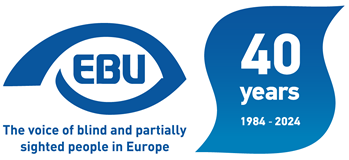Copyright
Does your national copyright legislation contain exceptions and other special provisions for people with visual impairment?
Do these exceptions allow for making copy of a book without the publisher's permission?
Do these exceptions allow for scanning books (in particular is an individual with visual impairment allowed to scan a book for him/herself, or does a special organization have to do it?)
Do these exceptions allow for sharing books produced on accessible formats? (in particular is an individual with visual impairment allowed to share with friends books he/she scanned?)
Are there special copyright provisions regarding accessible text books and other educational material?
1. Does your national copyright legislation contain exceptions and other special provisions for people with visual impairment?
Spanish Act N° 23/2006 of 7 July 2006, modifying the consolidated Intellectual Property Act, states explicitly in Article 31 (2) that:
“2. The public reproduction, distribution and communication of works already available which are carried out for the benefit of persons with disabilities shall also not require authorisation, provided they are not carried out for the purpose of making a profit, bear a direct relation to the disability in question, are undertaken using an adaptive procedure or means for persons with disabilities and are limited to the requirements of the disability.”
Article 161, dealing with the limits placed on technical measures, provides for the following:
“1. The rights holders of works or lending material which are protected using efficient technological measures must facilitate to the beneficiaries of the limits, as listed below, suitable means enabling them to enjoy such works or lending material, in accordance with their purpose and provided that the beneficiaries enjoy legal access to the works or lending material in question. The limits are as follows:
[…]
b) Limit relating to public safety, official procedures or aiming to benefit persons with disabilities in the terms laid out in Article 31 (2).”
2. Do these exceptions allow for making copy of a book without the publisher's permission?
Yes, although the wording is “authors”, not “publishers”.
Compare with other countries Top
3. Do these exceptions allow for scanning books (in particular is an individual with visual impairment allowed to scan a book for him/herself, or does a special organization have to do it?)
The Act is drafted in terms general enough to include any type of adaptation, whatever that may involve, without explicitly mentioning the technology used. Scanning, the use of OCR software, text to speech, analogue and digital audio, large print, audio description and other accessible formats are, therefore, covered by Article 31 (2), provided the conditions set out in the law are met.
Additionally, the Act does not state who should carry out the adaptation. It can thus be done both by individuals and by organisations, as long as it is “for the benefit of persons with disabilities” and that the conditions set out in the Act are met.
4. Do these exceptions allow for sharing books produced on accessible formats? (in particular is an individual with visual impairment allowed to share with friends books he/she scanned?)
As is the case with the systems that may be used to adapt books, the Act does not go into detail regarding the means of distribution; thus, it does not specifically deal with the case set out in the question. However, based on the spirit of the Act, if the distribution is to people who need it, and provided the other requirements set out in Article 31 (2) are met, it is likely to be permitted.
5. Are there special copyright provisions regarding accessible text books and other educational material?
No, there are none. Adapting any type of book or material, as long as it has already been made available, is provided for by the Act.

